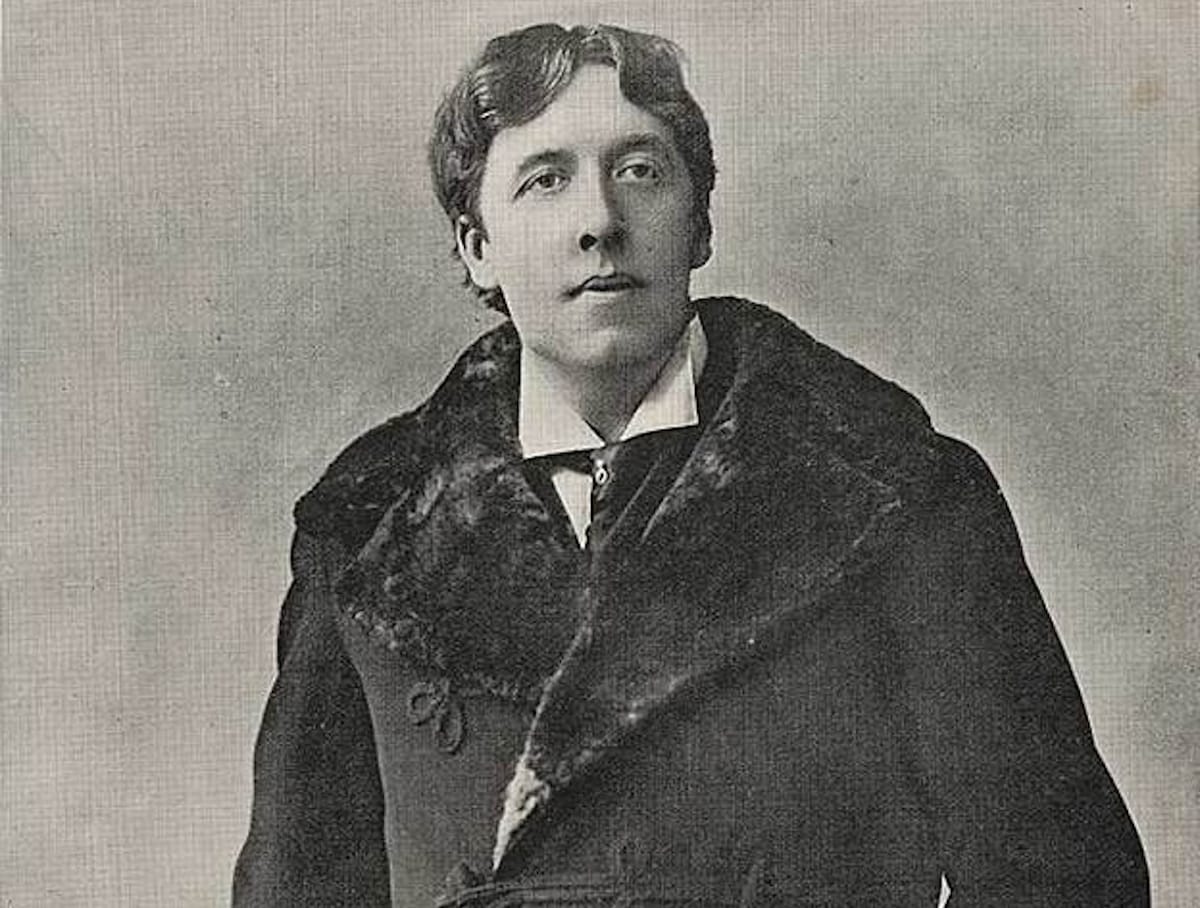On the Internet and in various books you can often find a quote attributed to the famous Irish writer. We have verified the correctness of this attribution.
Another translation option for the phrase is “Forgive your enemies - this is the best way to piss them off.”
In Russian, the statement signed by Wilde can be found in various online collections of aphorisms (“Quotes from famous personalities", "Quotes.info», "Pearls of thought", Socratify.net), magazine "Rules of life", some modern books, as well as on social networks: Facebook, "VKontakte" And Telegram.
There are a great many quotes about forgiving enemies: on this topic Alexander Herzen, Heinrich Heine, Francis Bacon and other famous figures spoke out - each in his own way. Many discussions on this issue go back to one of the basic ideas of Christianity - forgiveness. For example, Oscar Wilde in his Notes from Reading Gaol reasons about one of the sayings of Jesus: “When He says: “Forgive your enemies,” he does not say this for the sake of the enemy, but for our own sake and because love is more beautiful than hatred.” However, this phrase in no way corresponds to the quote being analyzed, either in meaning or context.
In the original, the phrase attributed to Wilde is: “Always forgive your enemies; nothing annoys them so much.” She's pretty popular on the web.
Oscar Wilde (1854–1900) left behind a rich literary legacy. “Verified” studied the multi-volume collected works of the writer, published at the beginning of the 20th century in publishing houses Keller-Farmer Co., The Nottingham Society And Wyman-Fogg Co., various biographies writer, publications on websites Oscar Wilde Society, Oscar Wilde Online, electronic archive Trinity College in Dublin, a digitized collection of Wilde's letters and manuscripts on the website Morgan Library and Museum (USA) and a number of other authoritative sources. They contain no traces of the search phrase. It’s not even in the famous book researcher Ralph Keyes' "The Wit and Wisdom of Oscar Wilde", containing a large number of aphorisms of the Irishman.
Search by books and periodicals on project sites Internet Archive And "Google Books"shows that the mass dissemination of the aphorism with its authorship attributed to Oscar Wilde began in 1954, when it was published by several English-language newspapers and magazines in the USA and India. The earliest references to newspapers refer to an article in the popular Reader's Digest magazine.

Researchers from the Quote Investigator project, discovered in the issue of Reader’s Digest published at the end of May 1954, the sought-after quote with attribution to Oscar Wilde is noted: the magazine does not contain any references to the source of the phrase, and in general in those years, quotes sent by readers were often posted there, which were not checked for accuracy and often contained errors.
Before May 1954, the quote being analyzed is not found verbatim in sources either with attribution to Wilde or without mentioning the author. The closest thing to it - up to a synonymous word - is the phrase “Always forgive your enemies.” “Nothing annoys them so intensely” can be found in an issue of a British newspaper The Sketch dated April 13, 1949. It contained humorous instructions for young people by the writer Percy Coulson, such as: “Only very stupid people like practical jokes,” “Where there is universal equality, there can be no quality,” and “Always forgive your enemies. Nothing irritates them more."
Percy Colson is not an accidental person in the context of studying Wilde's legacy. He was co-author of the book "Oscar Wilde and Black Douglas”, published in the same 1949 and told about the writer and his lover, the Marquise of Queensbury, the second author of the book. The upcoming publication of the biographical study was reported in the same newspaper The Sketch, and this may have confused one of the readers, who several years later sent a quote to the editors of Reader’s Digest. At the same time, Colson was certainly not the first to come up with the idea of an aphorism about forgiving enemies. Thus, in Felix Grendon’s story “Cold Philosopher”, published in the New York magazine The International in 1911, the hero declares: “I always forgive my enemies; nothing enrages them more.” 11 years later Grendon repeated this quote in the novel "Race for Love".
So Oscar Wilde has nothing to do with the viral quote about forgiving your enemies. A phrase quite similar in meaning was used after his death by the writer Felix Grendon. The quotation began to be widely attributed to Wilde after its publication in Reader’s Digest magazine, which was apparently based on a phrase by Percy Colson, one of Wilde’s biographers.
Cover photo: Wikimedia Commons
Read on topic:
- Did Oscar Wilde say: “The only good thing in England is what is taken from other countries”?
- Did Oscar Wilde say: “Everything that is beautiful in this life is either immoral, illegal, or fattening”?
- Did Mark Twain say, “There should be moderation in everything, including moderation”?
If you find a spelling or grammatical error, please let us know by highlighting the error text and clicking Ctrl+Enter.






